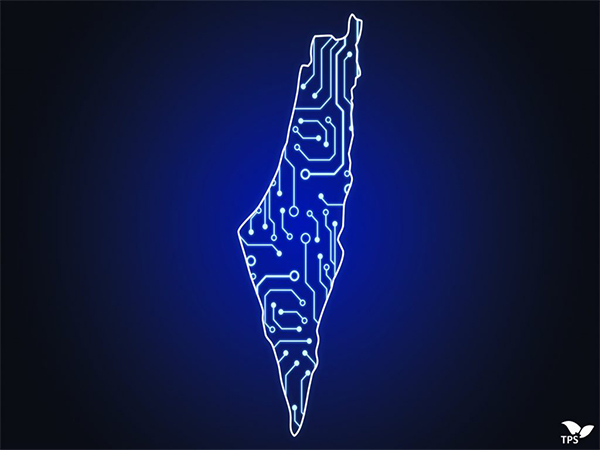Tel Aviv [Israel], November 24 (ANI/TPS): Israel's high-tech leaders want the world to know that they are open for business, despite the war against Hamas in the Gaza Strip.
That's why Start-Up Nation Central, a Jerusalem-based nonprofit that works to foster Israeli innovation, created the #nomatterwhat campaign in partnership with the Viola Ventures venture capital fund, the G-CMO Forum of Israeli chief marketing officers and the Atreo branding and marketing agency.
"Hundreds of companies have joined the campaign and shared examples illustrating how they continuously deliver while the country is at war. The Israel Innovation Authority is now adapting it in their message," says Estie Rosen, director global communications and brand at Start-Up Nation Central.
The campaign aims to reassure international stakeholders, investors and customers as well as Israeli companies' workforce abroad that the war is not disrupting ongoing operations or affecting Israel's capacity to deliver.
"The #nomatterwhat campaign strengthens our philosophy and shows the world that we are winning the battle as a country and as an industry," says Yossi Carmil, CEO of Cellebrite Digital Intelligence and Forensics Solutions, a cyber-tech firm headquartered in Petach Tikvah and traded on the Nasdaq exchange.
"On Oct. 7, some of our employees and partners abroad thought Israel would go down the drain. There was a need to explain that we are still here, we still exist and we are capable of conducting business as usual," Carmil says.
For Roy Fridman, CEO of C2A Security, a VC-backed startup based in Jerusalem that addresses the cybersecurity needs of car makers and mobility companies, delivering is an Israeli duty.
"Israel is the Startup Nation and we must deliver on this #nomatterwhat. We were quickly moving towards commercial agreements. We couldn't let it stop our commercial success," he says.
On Oct. 22, C2A Security was named one of 10 winners of the European Startup Prize for Mobility, chosen from more than 700 candidates.
Yossi Carmil, CEO of Cellebrite Digital Intelligence and Forensics Solutions. Photo by Geva Talmor.
The tech industry accounts for 18% of Israel's GDP and employs about 14% of the country's workforce, according to the Israel Innovation Authority, a governmental entity in charge of planning and executing the country's innovation policy. The sector is also responsible for 50% of Israel's exports and 30% of its income tax revenue.
However, both established tech companies and startups have experienced difficulties since Israel declared war on Hamas on Oct. 7.
Israel has mobilized more than 360,000 military reservists for over a month to conduct air, sea and ground operations targeting Hamas's terrorist infrastructure and endeavouring to rescue the approximately 240 persons taken hostage during the terrorist's invasion of the northwestern Negev last month. Many of those on the frontlines are in their civilian lives part of the tech industry.
While the international demand for Israeli tech products hasn't declined, Israeli companies have had to adopt an all-hands-on-deck policy in order to maintain business continuity with an estimated 20 per cent of the tech workforce mobilized to protect the nation.
"The Israeli tech industry knows how to think out of the box. We took out of our drawers mitigation plans we wrote in advance for such a scenario and everyone went the extra mile to make it work," says Carmil.
Carmil, a former officer in the Paratroopers Brigade, says his company fights on the business front.
"Those on the frontlines are risking their lives for the country. Our mission is to take care of economic security during the war and the day after," he adds.
Cellebrite assists Israeli law enforcement and special operations in times of crisis. "We've done a lot in that direction," he says, adding that he cannot discuss this in detail.
Leaders in the high-tech industry have demonstrated outstanding solidarity by supporting young startups in this difficult time, says Carmil. In fact, Cellebrite is currently backing two young startups with human resources.
"It's a time of wise cash management--rely on the community and remember that it will be over eventually and companies will continue with their own programs," he says in reference to new corporations.
ClickFreeze, a startup based in Tel Aviv that provides real-time ad campaigns and website threat monitoring, was meant to finalize an investment agreement on Oct. 8. Negotiations have been postponed indefinitely.
"The offer had already been postponed once because of COVID. As a result, we've decided to fast-track our plans to go to market and are working day and night to make it happen. The only way out of this is to find clients," says ClickFreeze CEO David Allouch, who also embraced the #nomatterwhat campaign.
The number of new startups created in Israel has consistently declined since 2015. According to an Innovation Authority estimate, 600-700 companies were established in 2022 compared to 1,400 in 2014. However, 2022 was the second-best year ever in terms of raising capital.
In an effort to provide vital support to struggling startups, the authority announced on Oct. 19 the launch of a fast-track grant channel with an initial allocation of approximately 100 million shekels (close to $27 million) for around 100 Israeli startup companies with significant technological assets and short runways.
Startup runway refers to how many months an enterprise can keep operating before it's out of money unless it changes how it operates or raises additional capital.
On October 25, Finance Minister Bezalel Smotrich announced the expansion of the budget allocated to the Israel Innovation Authority's Fast-Track Funding Program from 100 million shekels to 400 million shekels (around USD 107 million).
"Make sure you have enough runway to pass the storm. Break all the walls. Do anything needed to survive, because this will end," says Fridman. (ANI/TPS)
 हिंदी खबर
हिंदी खबर
